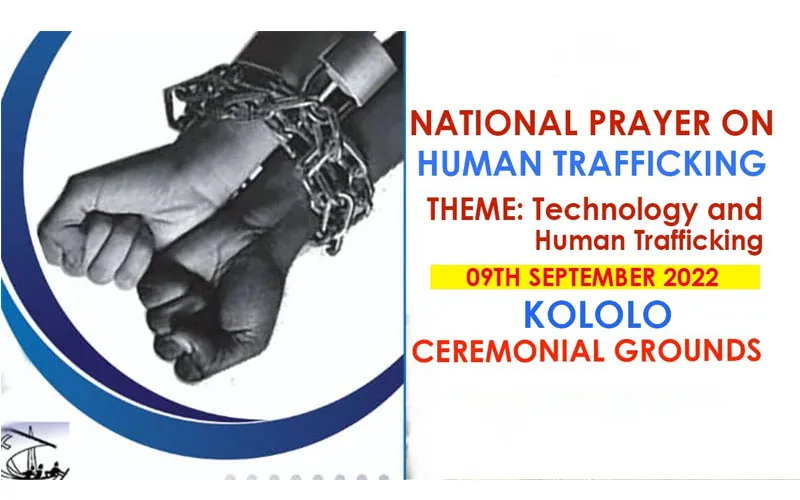Gulu, 12 September, 2022 / 9:30 pm (ACI Africa).
The dynamics around the “heinous crime” of human trafficking in Uganda cannot be addressed by a single entity, the Chairman of Uganda Episcopal Conference (UEC), Bishop Joseph Antony Zziwa, has said.
In his September 9 keynote address on the occasion of the National Prayer on Human Trafficking at Kololo Independence grounds in Uganda’s Kampala Archdiocese, Bishop Zziwa condemned the practice of human trafficking describing it as an “evil trade”.
“Given the complexity of this evil trade, no single individual, organization, nor government can overcome the human trafficking that deprives our brothers and sisters their dignity and freedom,” UEC Chairman said in his message that Archbishop John Baptist Odama of Uganda’s Gulu Archdiocese read out.
The Local Ordinary of Uganda’s Kiyinda–Mityana Diocese underscored the need for synergies in tacking the challenge of human trafficking, saying, “We should, therefore, join hands in the struggle against this evil at all levels of our society; starting from the individual, family, local, national and the international.”
The Ugandan Bishop acknowledged with appreciation the National Prayer initiative as an event that seeks to encourage not only the government but also religious leaders and other groups to unanimously take an action against “the horror of human trafficking”.








